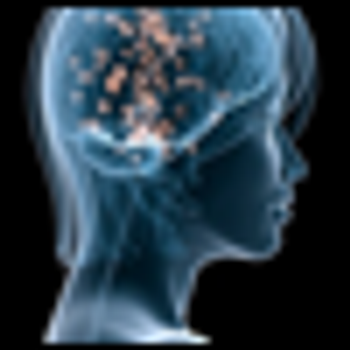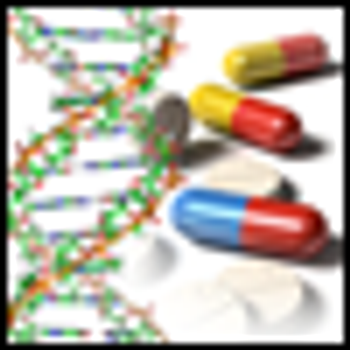
Help in Clinical Decision Making

Help in Clinical Decision Making

There are limited data on clinical and biological predictors of antipsychotic drug response. The ability to identify those patients who will respond well to psychotropic drug treatment or who will be at a higher risk for adverse effects could help clinicians avoid lengthy ineffective drug trials and limit patients’ exposure to those effects. Moreover, better predictability of treatment response early in the course of a patient’s illness can result in enhanced medication adherence, a significant predictor of relapse prevention.

Diagnostic Dilemmas-Effective Treatment Approaches

Oregon’s legislature has passed the bill: should the governor sign it? Most opinions on this issue are strong, and many have reached the point of invective. Even such a cool mind as Ronald Pies' has weighed in with an emotionally charged editorial.1 To speak in favor when so many are opposed seems only to invite more affective discharge. On the other hand, editorial views thus far may be moving us toward extremes on an issue that is highly complex. Perhaps a dialectic approach -– what value can we find in an opposing view? -- would be wise at this point. In that spirit, here are 4 considerations that I hope will be useful.

Traumatic brain injury (TBI) affects approximately 2 of every 1000 persons per year. Persons vulnerable to mental illness (eg, persons with alcohol abuse or antisocial personality disorder) are particularly at risk.

Given the potential for a significant role in recognition of neurologically complex disorders, psychiatrists should become familiar with diagnostic criteria and appropriate therapeutic option.

Parkinson disease (PD) is the second most common neurodegenerative illness in the United States, affecting more than 1 million persons. Disease onset is usually after age 50. In persons older than 70 years, the prevalence is 1.5% to 2.5%.1 While the primary pathology involves degeneration of dopaminergic neurons in the substantia nigra, circuits important in emotion and cognition-such as the serotonergic, adrenergic, cholinergic, and frontal dopaminergic pathways-are also variably disrupted.

On February 12, 2009, the US Court of Federal Claims issued a trio of long-awaited decisions in its Omnibus Autism Proceeding.1 The 3 were representative cases chosen from more than 5500 pending MMR/autism cases by the Plaintiffs’ Steering Committee. Each presented the theory that the measles-mumps-rubella (MMR) vaccine in combination with thimerosal, a mercury-based ingredient contained in some diphtheria-tetanus-pertussis (DTP), diphtheria-tetanus–acellular pertussis (DTaP), hepatitis B, and Haemophilus influenzae type B (Hib) vaccines, causes autism. In nearly 700 combined pages that reviewed the scientific and epidemiological evidence, all 3 opinions determined that the plaintiffs had not demonstrated a link between these vaccines and autism.

The issues being debated here have important long-term implications for psychiatry, and we are pleased to present these revised versions of 2 principal presentations.

Treating Child and Adolescent Mental Illness: A Practical, All-in-One Guide is just what its title promises: a clinically relevant, encompassing yet concise guide to child and adolescent mental health care. Dr Shatkin’s book serves as a useful primer for medical and mental health clinicians who do not specialize in the treatment of children and adolescents but who find themselves faced with the growing demand to provide mental health services to this sector. It is also a handy refresher for child and adolescent clinicians called on to treat disorders seen less often in their practices, as well as a reference for nonphysicians less familiar with psychopharmacological interventions.

Another lifetime ago-just after leaving residency-I took a job as a psychiatric consultant at a large, university mental health center. Had I known the poisoned politics of the place, I would have headed for someplace safe-like, say, Afghanistan.

Newly published recommendations for pharmacological and psychosocial treatments from the Schizophrenia Patient Outcomes Research Team (PORT) are the first to address related treatments, such as smoking cessation, substance abuse, and weight loss, and they are the first update since 2003.

Dr Elvin Semrad was a much-loved psychiatrist and psychotherapy supervisor who had a profound influence on hundreds of psychotherapists and psychoanalysts in the Boston area. One of his unique qualities was his ability to connect empathically with even the most psychotic patients. He supervised at Boston State Hospital and then for 4 decades at the Massachusetts Mental Health Center (MMHC) in Boston, where he conveyed his strong conviction that psychotic and other seriously men-tally ill patients could benefit from long-term psychoanalytically oriented psychotherapy.

During my medical training in the early 1980s, I attended a Grand Rounds on health care reform. Sleep-deprived physicians-in-training are easily conditioned to snooze upright in their auditorium seats, and economics is not an interest of choice for me, but when the speaker told us that there would be no solution to rising health care costs except to fracture the bond between patient and doctor, I found myself engaging in nightmarish fantasies that in subsequent decades have come true.

Medical training is awash in catch phrases and shibboleths. Some can be useful (“When you hear hoofbeats, think horses not zebras”); others, perhaps overly simplistic (“If it’s not in the chart, it didn’t happen”). A current divination clinging to medical consciousness is the concept of evidence-based medicine (EBM).

The young adult years (18 to 29) are a critical time of transition, and they present unique challenges in regard to mental health issues and development. Until recently, most research has focused either on children and adolescents or adults. Grant and Potenza’s Young Adult Mental Health is a comprehensive text for clinicians and researchers who work with persons in the transitional period of young adulthood.

A pair of recent research articles has cast the public spotlight on treating schizophrenia in youths with antipsychotic medications.

In 2 previous editorials-“The ‘McDonaldization’ of Psychiatry” and “Doctor, Are You ‘Drugging’ or Medicating Your Patients?”-I focused on some serious problems in current psychiatric practice and on various shortcomings in our treatments. In the third “panel” of this editorial triptych, I want to take note of the considerable good that psychiatric treatment may bring to those who suffer with devastating illnesses.

Senator Charles Grassley (R-IA) is continuing his 2-year investigation of potential conflicts of interest between academic researchers and the pharmaceutical industry.

Until the early 19th century, psychiatry and religion were closely connected. Religious institutions were responsible for the care of the mentally ill. A major change occurred when Charcot1 and his pupil Freud2 associated religion with hysteria and neurosis. This created a divide between religion and mental health care, which has continued until recently. Psychiatry has a long tradition of dismissing and attacking religious experience. Religion has often been seen by mental health professionals in Western societies as irrational, outdated, and dependency forming and has been viewed to result in emotional instability.3

CATIE can be viewed as a switch study. Switches offer both opportunity and risk. Data from CATIE demonstrate differences in overall effectiveness, but these differences depend on the individual patient context.

On October 19, 2009, the Office of the Deputy US Attorney General issued a memorandum, “Investigations and Prosecutions in States Authorizing the Medical Use of Marijuana.”1 The memo announced a federal policy to abstain from investigating or prosecuting “individuals whose actions are in clear and unambiguous compliance with existing state laws providing for the medical use of marijuana.” The memo made clear, however, that it did not “legalize marijuana or provide a legal defense to a violation of federal law.” Rather, it was “intended solely as a guide to the exercise of investigative and prosecutorial discretion.”

Hy Bloom provided an expert psychiatric report in a multiple murder case in which the accused, who had schizophrenia and depression, had killed his wife and 2 children. Before the murders, the accused had been seeing a psychiatrist and family physician for treatment of the mental disorders.

It is my privilege and pleasure to highlight this Special Report on forensic psychiatry. (The first articles in this series appeared in the November issue and are posted on www.psychiatrictimes.com.) The respected authors provide us with the most recent thought on subjects that should be of interest to every practicing psychiatrist.

It is widely accepted that patients with schizophrenia have some degree of cognitive deficiency and that cognitive deficits are an inherent part of the disorder. Historically, there has been less focus on cognitive deficits in patients with bipolar disorder; however, numerous studies of cognition in patients with bipolar disorder, including several comprehensive meta-analyses of bipolar patients who were euthymic at the time of testing, have recently been undertaken.1-4 Each of these analyses found that cognitive impairment persists during periods of remission, mainly in domains that include attention and processing speed, memory, and executive functioning.4